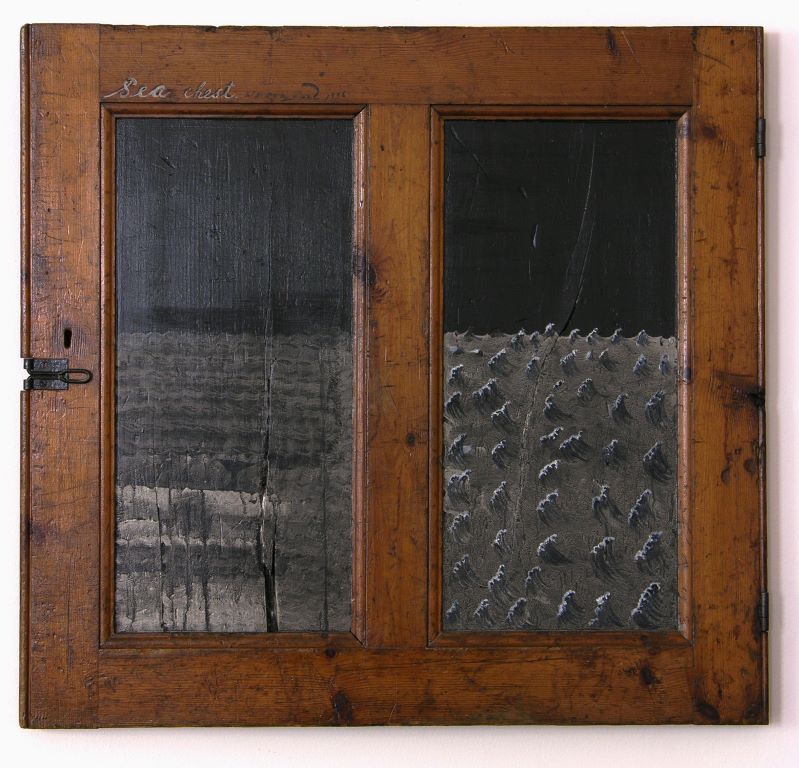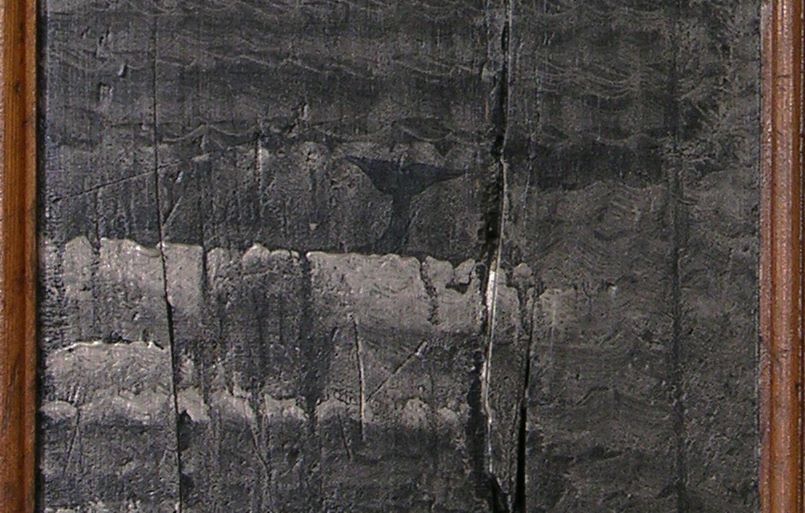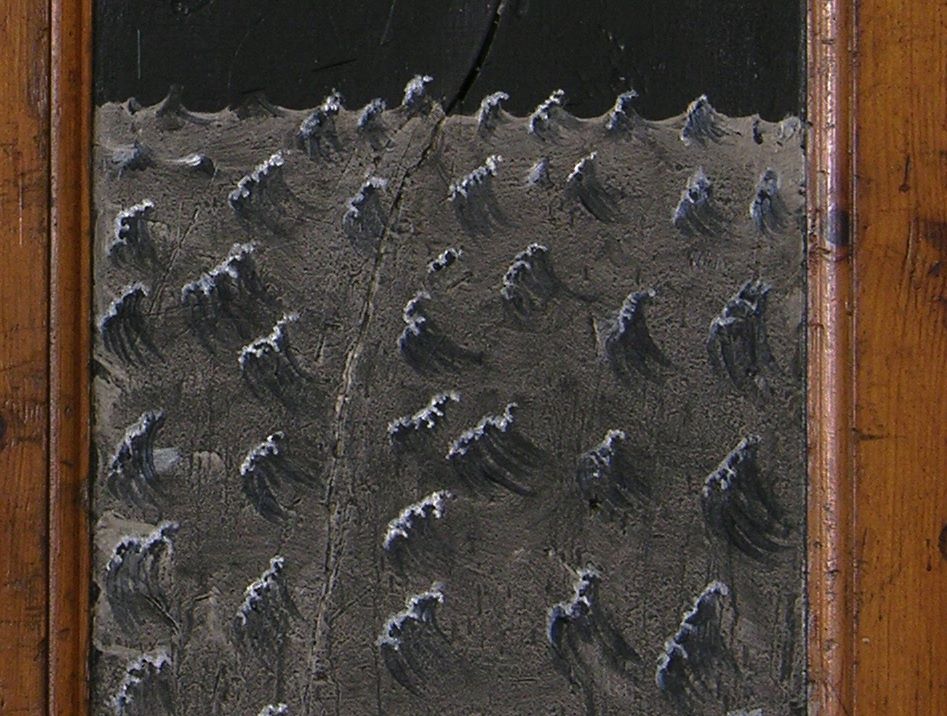Monday 20 December 2010
Ron Brownson

W.D. Hammond’s Sea Chest is a clever painting. It looks, at first glance, as if it is an example of antique maritime folk art, perhaps created by a whaler below deck during the 19th century.
The object is, in fact, an actual Baltic pine door that has considerable age. The stains and marks on all genuine and are not faux surface effects but actual evidence of its use over many years as a door to some long-lost cupboard.
Looking closer at this image of a wild and freezing sub-Antarctic ocean, one notices a sperm whale diving underwater. W.D. Hammond visited the Auckland Islands during 1991 and the experience shifted the focus of his work. The nature of animal life and the recollection of a distant past became intertwined. In Sea Chest, memory and the aura of whaling in what James Cook called ‘the Great Southern Ocean’ mix together.

While the painting is modest in scale, it renders maritime experience with a true wallop. This work has that great quality known as ‘wall power’ – once seen, it is never forgotten. Although we are looking at a painting created in the 1990s it does not feel like that at all. It speaks, visually, to the difficult life of early 19th century sailors and the reason why they risked their lives as ‘far as a man may go’. Cook’s words, again.
The Friends of the Gallery gave this painting to the people of Auckland in 1998.

W.D.Hammond
Sea Chest 1996
oil on wood
715 x 760mm
Auckland Art Gallery Toi o Tāmaki,
gift of the Friends of the Auckland Art Gallery Acquisitions Trust, 1998